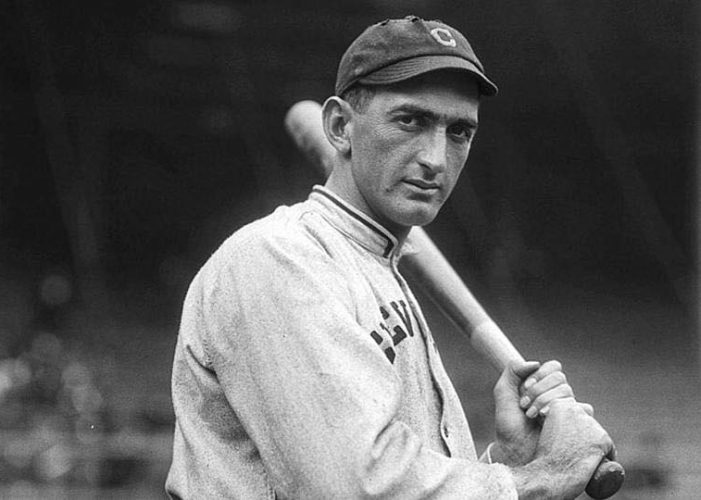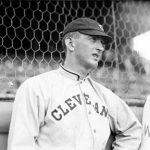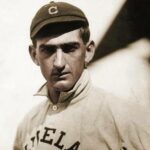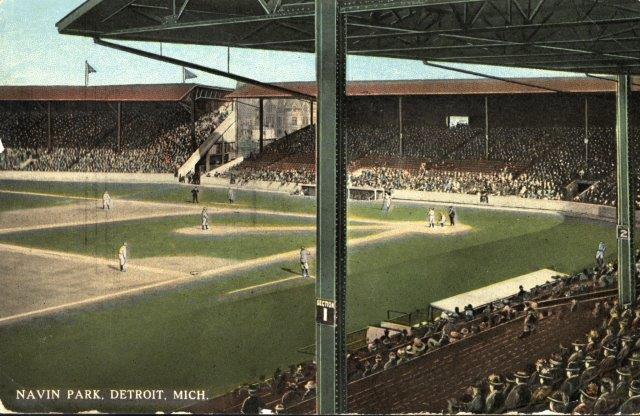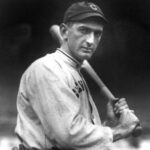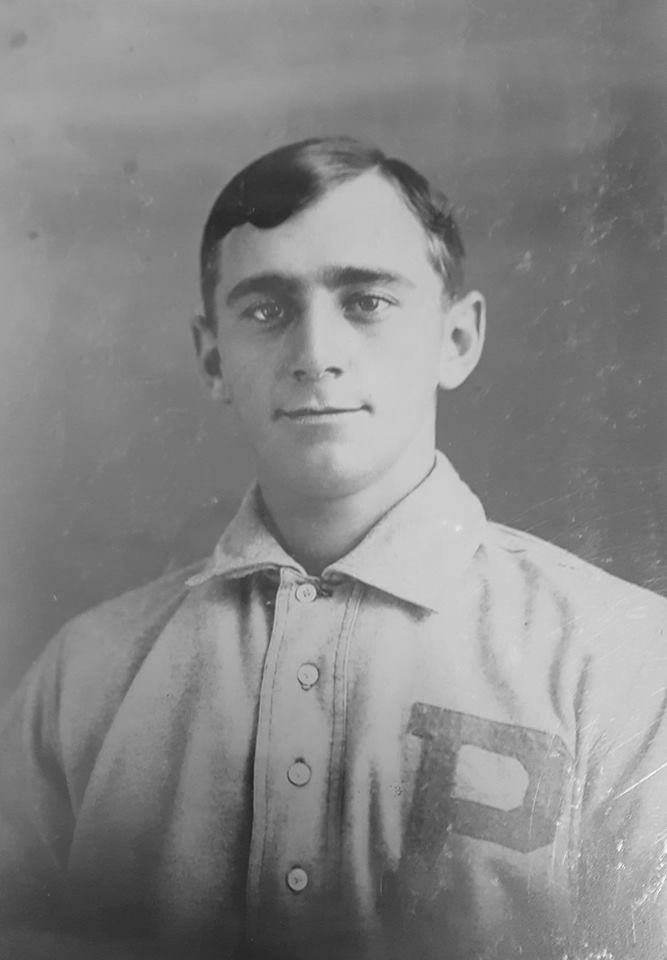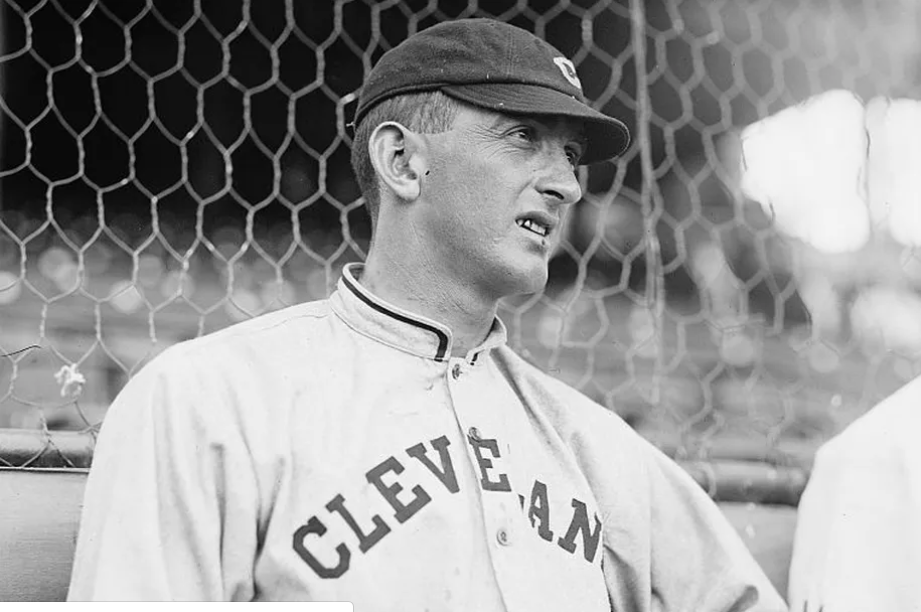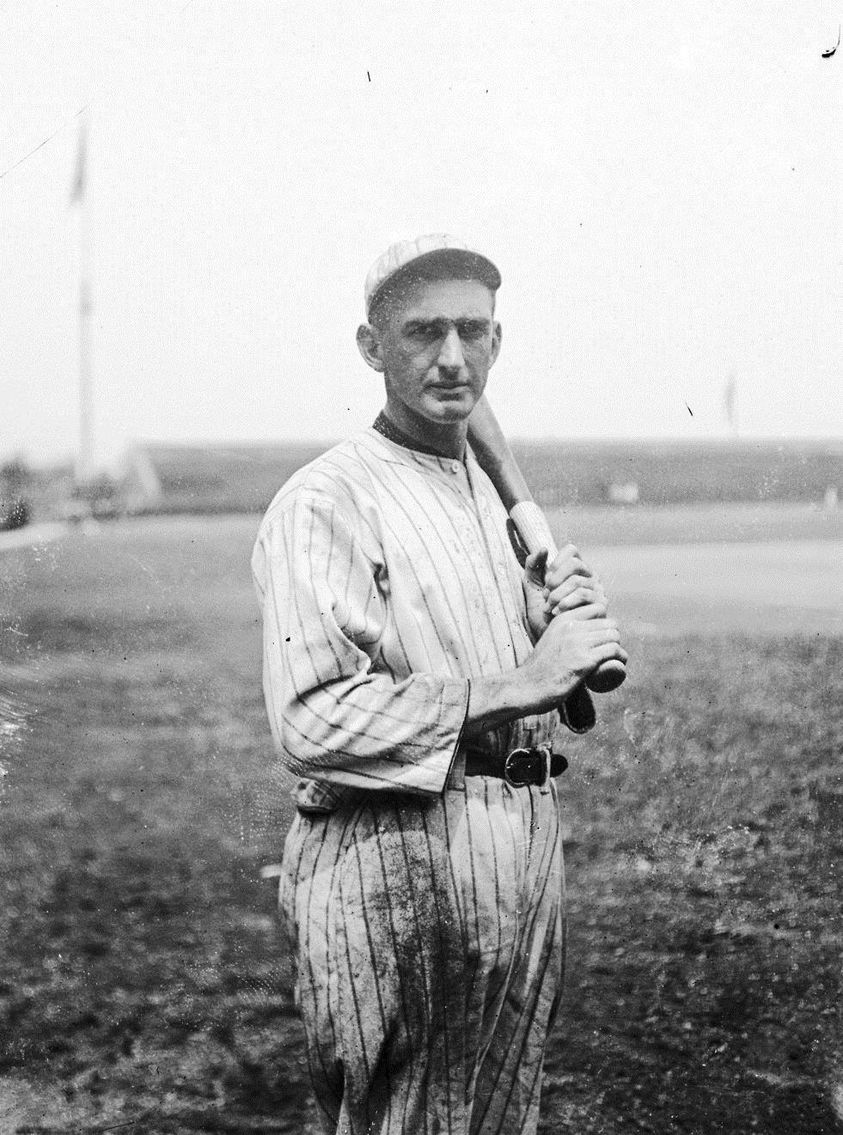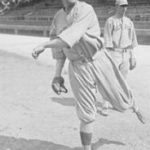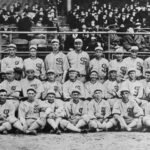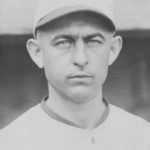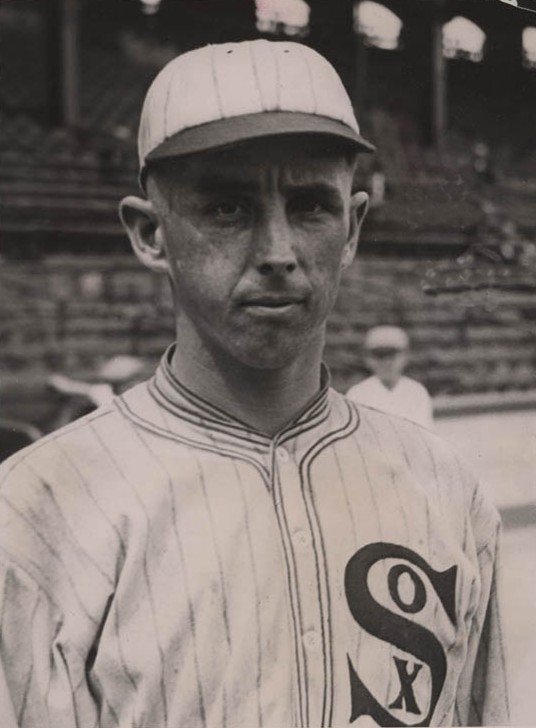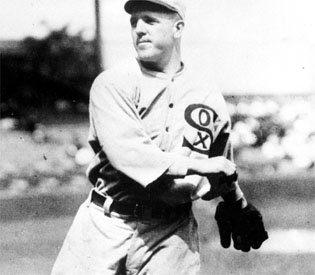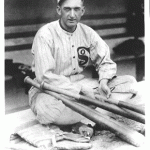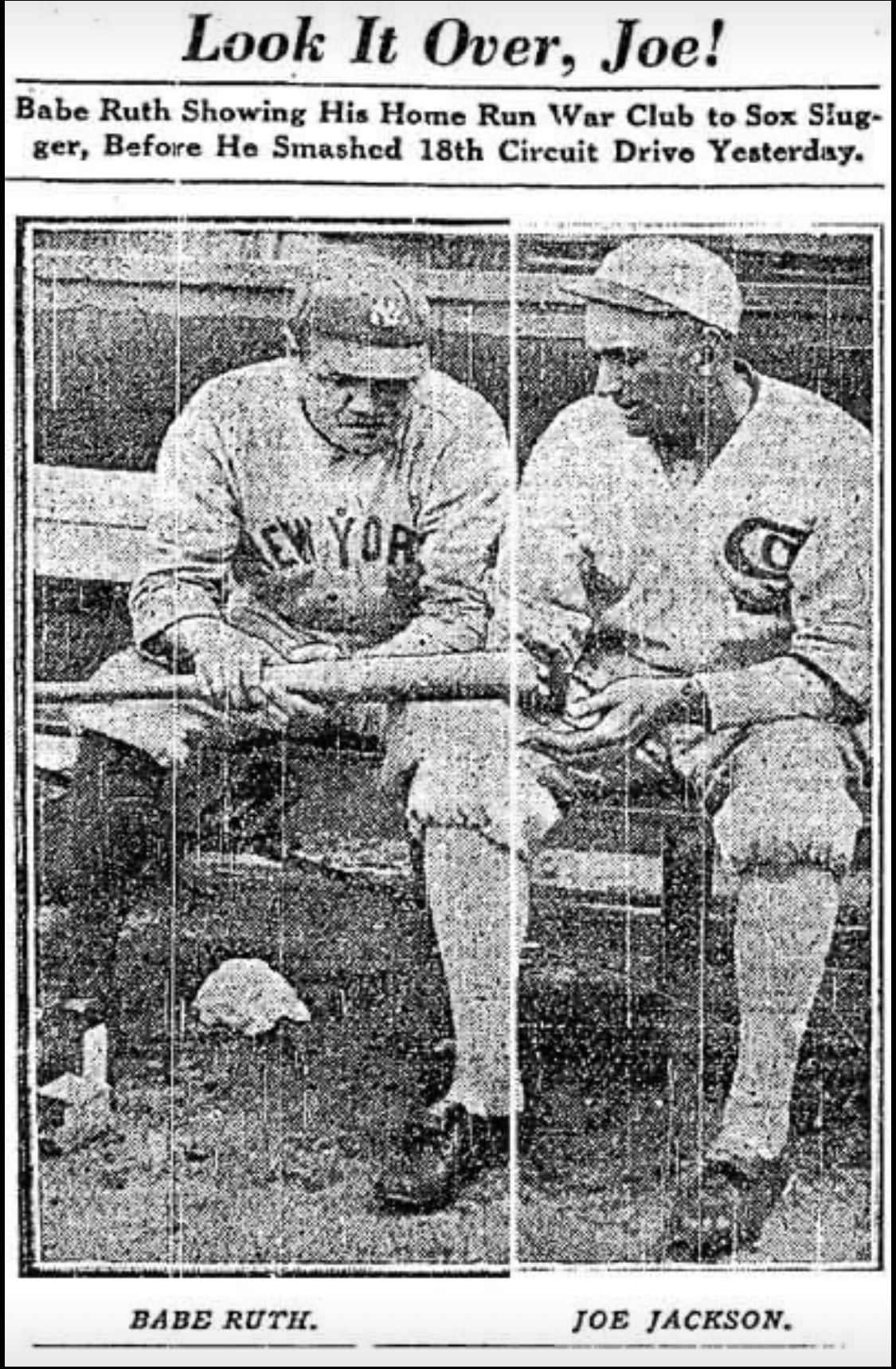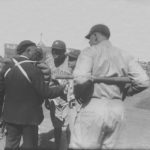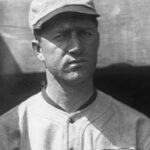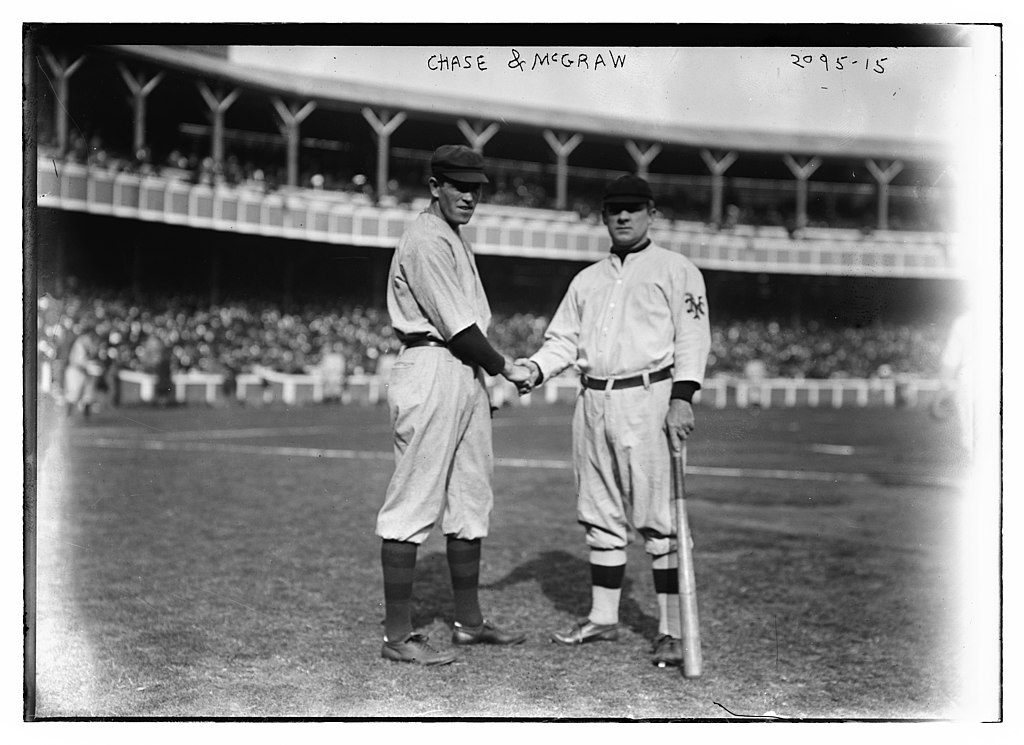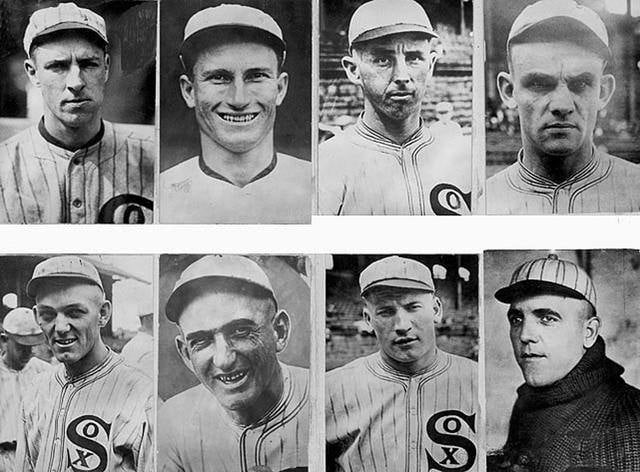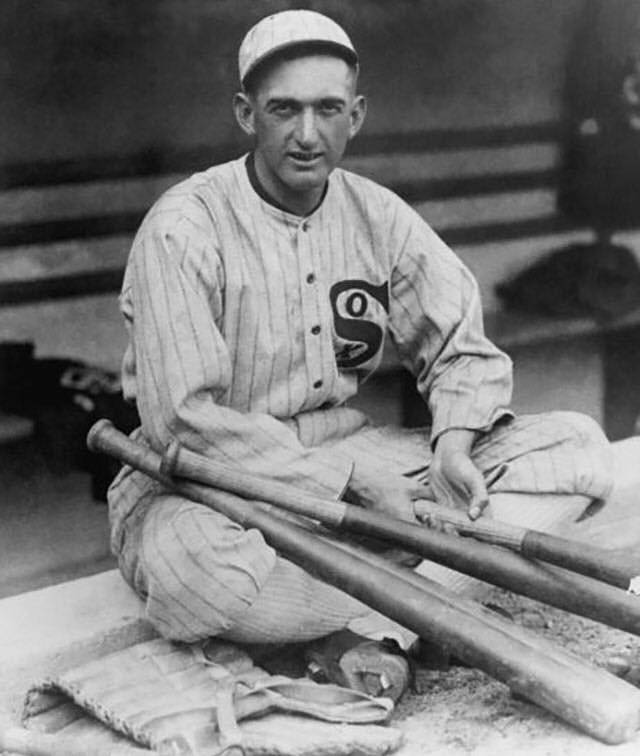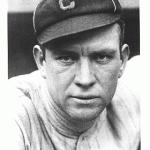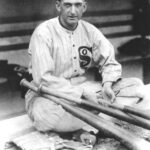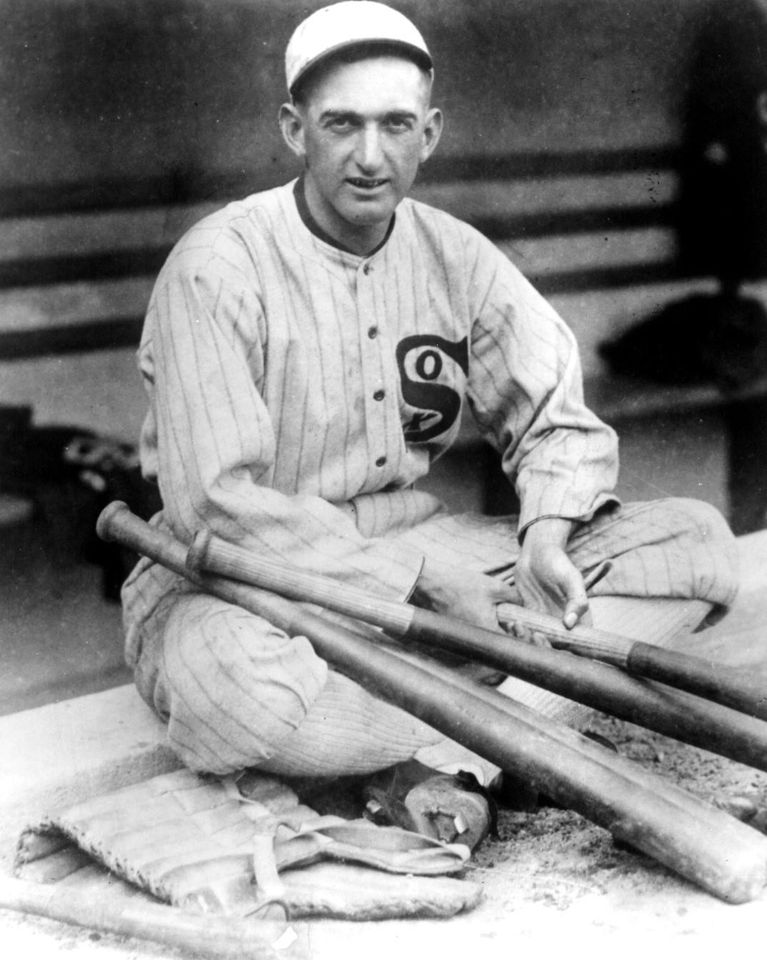Shoeless Joe Jackson
Position: Outfielder
Bats: Left • Throws: Right
6-1, 200lb (185cm, 90kg)
Born: July 16, 1887 in Pickens County, SC
Died: December 5, 1951 in Greenville, SC
Buried: Woodlawn Memorial Park, Greenville, SC
Debut: August 25, 1908 (3,083rd in major league history)
vs. CLE 4 AB, 1 H, 0 HR, 1 RBI, 0 SB
Last Game: September 27, 1920
vs. DET 3 AB, 1 H, 0 HR, 1 RBI, 0 SB
Full Name: Joseph Walker Jackson
Nicknames: Shoeless Joe
View Player Info from the B-R Bullpen
View Player Bio from the SABR BioProject
Nine Other Players Who Debuted in 1908
Donie Bush
Larry Gardner
Frank Baker
Amos Strunk
Buck Herzog
Rube Marquard
Slim Sallee
Hippo Vaughn
Joe Jackson
The Joe Jackson Teammate Team
C: Steve O’Neill
1B: Chick Gandil
2B: Eddie Collins
3B: Frank Baker
SS: Ray Chapman
LF: Jack Graney
CF: Happy Felsch
RF: Nemo Leibold
SP: Eddie Plank
SP: Willie Mitchell
SP: Eddie Cicotte
SP: Lefty Williams
SP: Red Faber
RP: Dave Danforth
M: Kid Gleason
Vintage Baseball HOT ON EBAY
Card Collections ENDING SOON ON EBAY
MOST WANTED ROOKIE CARDS
VINTAGE SPORTS TICKETS
Baseball Hall of Famers
Notable Events and Chronology for Shoeless Joe Jackson Career
Biography
Jackson was supremely gifted in his baseball ability and supremely limited in his ability to deal with real life. He could hit, run, and throw with the best but he lacked education, judgment, and character. When his limitations overcame his gifts, it was a tragedy of both baseball and American life.
Joe was an illiterate son of the cotton-town South, ignorant of city ways, easy to ridicule for everything but his baseball talent. The Athletics, his first ML team, turned him sullen and ineffective with their cruel, mocking humor. Manager Connie Mack gave up on him and shipped him to Cleveland for a mediocre outfielder, Bris Lord.
His Cleveland teammates accepted Jackson as he was and treated him well. He responded with the great years of his career. A graceful natural hitter (supposedly Babe Ruth patterned his batting stance on Jackson’s), he hit for power in an age of slap hitters, yet kept his BA near the top. In 1911, his first full season, he hit .408, then followed with .395, .373, and a mere .338 in 1914. He was unerring in the field, had a powerful and accurate arm, and ran the bases with savvy.
Money troubles forced Cleveland to trade him to the White Sox in ,l,l,”&1915 for three undistinguished players and $31,500. He hit less well for the Sox but still reigned as the star of the powerful team Comiskey had assembled. He contributed an uncharacteristically low .301 to the championship 1917 Sox but hit .351 with 96 RBI for the 1919 pennant winners. In 1920, he had one of his greatest seasons (.392, 12 HR, 121 RBI), but everything crashed with the revelation of the Black Sox scandal.
Friends pointed to his .375 WS average as evidence that he’d played on the square, but Jackson had undoubtedly accepted the promise of $5,000 to fix the games. Banned from baseball for life, he returned to his small South Carolina town, started a dry-cleaning business, and prospered. Occasionally he swung “Black Betsy,” his famous bat, in sandlot and outlaw games. In time, he retrieved some of his dignity if not the glory. Locally, he was warmly regarded at his death.
@ET-DC@eyJkeW5hbWljIjp0cnVlLCJjb250ZW50IjoicG9zdF90YWdzIiwic2V0dGluZ3MiOnsiYmVmb3JlIjoiTGVhcm4gTW9yZSBhYm91dCB0aGUgdGVhbXMsIHBsYXllcnMsIGJhbGwgcGFya3MgYW5kIGV2ZW50cyB0aGF0IGhhcHBlbmVkIG9uIHRoaXMgZGF0ZSBpbiBoaXN0b3J5IC0gLSAtIC0gLSAtIC0gIiwiYWZ0ZXIiOiIiLCJsaW5rX3RvX3Rlcm1fcGFnZSI6Im9uIiwic2VwYXJhdG9yIjoiIHwgIiwiY2F0ZWdvcnlfdHlwZSI6InBvc3RfdGFnIn19@
Vintage Baseball HOT ON EBAY
Card Collections ENDING SOON ON EBAY
MOST WANTED ROOKIE CARDS
VINTAGE SPORTS TICKETS
Baseball Hall of Famers
Intro
Joe Jackson had the talent to be the greatest player in history, but he threw it away when he accepted $5,000 to throw the 1919 World Series. As part of the most infamous scandal in sports history, Jackson was banished from baseball following the 1920 season, along with his seven co-conspirators. The controversy over that decision has kept Jackson’s name alive long after his death in 1951, but the facts remain the same: Jackson was guilty of accepting bribe money from gamblers to fix the Series.
Minor Leages
Jackson played for the Greenville Spinners in 1932, in a semi-pro industrial league in South Carolina.
Replaced By
Bibb Falk, who was a fine hitter himself.
Best Season
Jackson’s 1911, 1912 and 1913 seasons are very similar in value. In 1911, as a rookie, he hit .408, which ranked second to Ty Cobb in the AL. Jackson set a rookie record with 233 hits, 126 runs scored, 45 doubles, 19 triples and a .590 slugging percentage. One note: offense was up in the AL in 1911 due to the fact that the league changed the baseball. Unlike today, when MLB refuses to admit if they tamper with the balls, in 1911 it was public knowledge that a new rubber center was used in baseballs in the AL.
Factoid 1
In the movie “Field of Dreams,” actor Ray Liotta portrayed Joe Jackson as a right-handed hitter, because Liotta could not hit left-handed.
Factoid 2
In 1990, a collector paid nearly $24,000 for a Joe Jackson autograph, a record amount for a 20th century autograph. Since Jackson was illiterate, he had to have copied the signature from one made by his wife.
Transition
July 25, 1910: Traded by the Philadelphia Athletics to the Cleveland Naps for Bris Lord; August 21, 1915: Traded by the Cleveland Indians to the Chicago White Sox for Braggo Roth, Larry Chappell, Ed Klepfer, and $31500 cash Hall of Fame manager Connie Mack has taken his share of heat for sending Jackson to Cleveland in the middle of the 1910 season for Bris Lord. But Mack had legitimate reasons for the move, even though it cost him in the long run. First, Jackson had toyed with Mack, refusing to report on two occasions, once in 1908 and once in 1910. Jackson was afraid to play in Philadelphia, fearful of being so far away from the comforts and familiarity of the south. Secondly, Jackson’s awkward southern habits made him an outcast with his Philadelphia teammates, much like Ty Cobb with Detroit. Mack made a deal that he felt netted him a solid outfielder, in Lord, who had came up with the A’s in 1905. In 1910 and 1911, the A’s won the World Series with Lord in center field. So the trade, at least short-term, benefitted Mack’s club. Lord performed poorly in the post-season, but he did bat .310 during the 1911 season with 37 doubles, 11 triples and 92 runs scored. Of course, Lord, whose large forehead earned him the ugly nickname “The Human Eyeball,” was not a great player like Jackson, and was out of the league in 1914.
Feats
Jackson set practically every rookie batting record you can think of in 1911. Most of those records have been eclipsed, except his .408 average, which may last forever.
Description
As a player, Jackson was a left-handed hitter with a beautiful swing, which Babe Ruth claimed to have imitated. Jackson had power and speed, was considered the finest left fielder in the game, and possessed a strong arm. He never won a batting title, but finished second to Ty Cobb in his first three full seasons, and ranked third on two other occasions. With his career curtailed because of the “Black Sox” scandal, Jackson’s career average remained frozen at .356 – the third highest in history.
Joe Jackson’s Lumber
Jackson spun, or had someone else spin, his bats out of hickory. He named his bats: there was Blonde Betsy, Big Jim, and Old General. But his most famous piece of lumber was Black Betsy, a charcoal-darkened bat with a wide barrel, a brass staple, and a Spalding logo on the sweet spot. Jackson received the bat in 1908, and used it into the 1930s, when he was playing in outlaw leagues in the south.
Notes
Jackson received at least three write-in votes for the Hall of Fame in the 1930s and 1940s, but after a while those voters just stopped writing his name down.
Other Resources & Links
Coming Soon
If you would like to add a link or add information for player pages, please contact us here.

